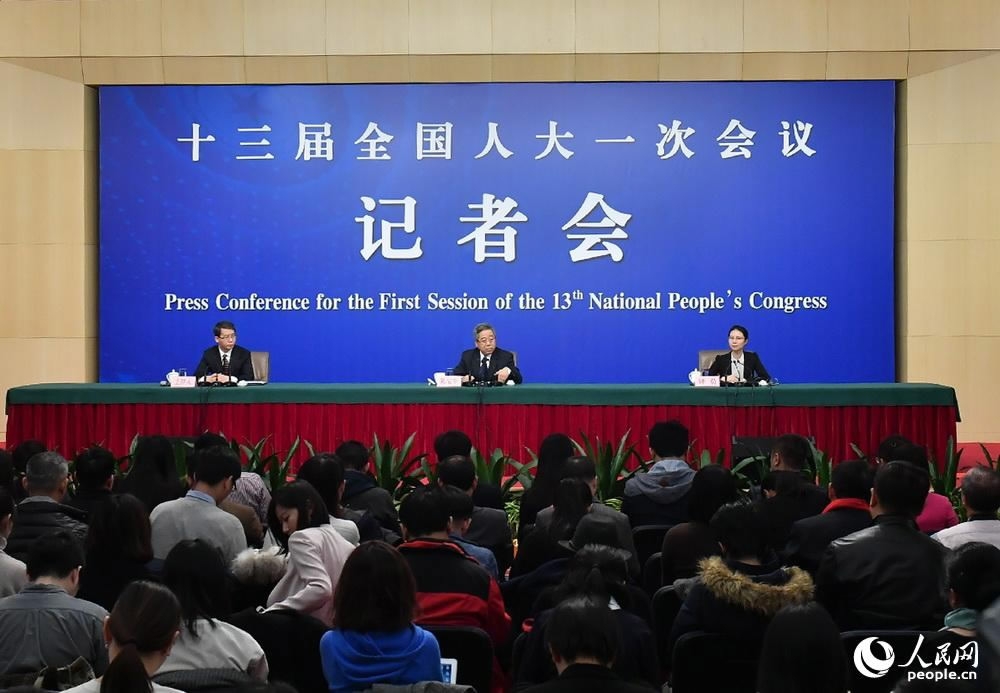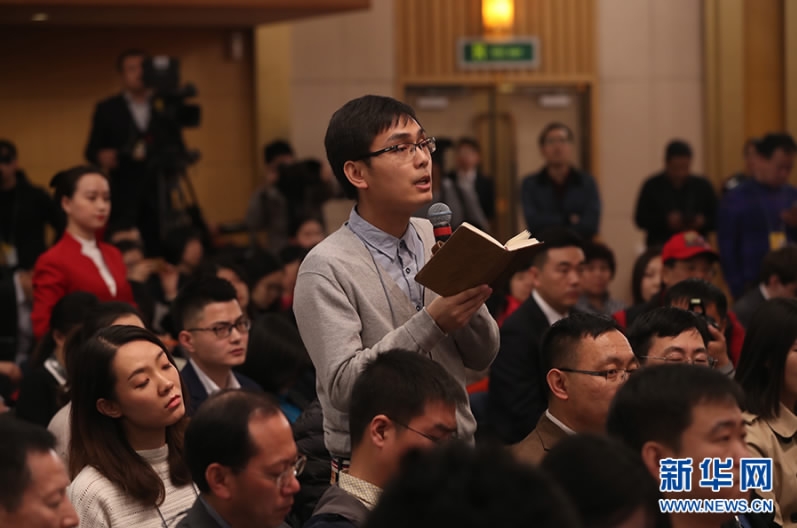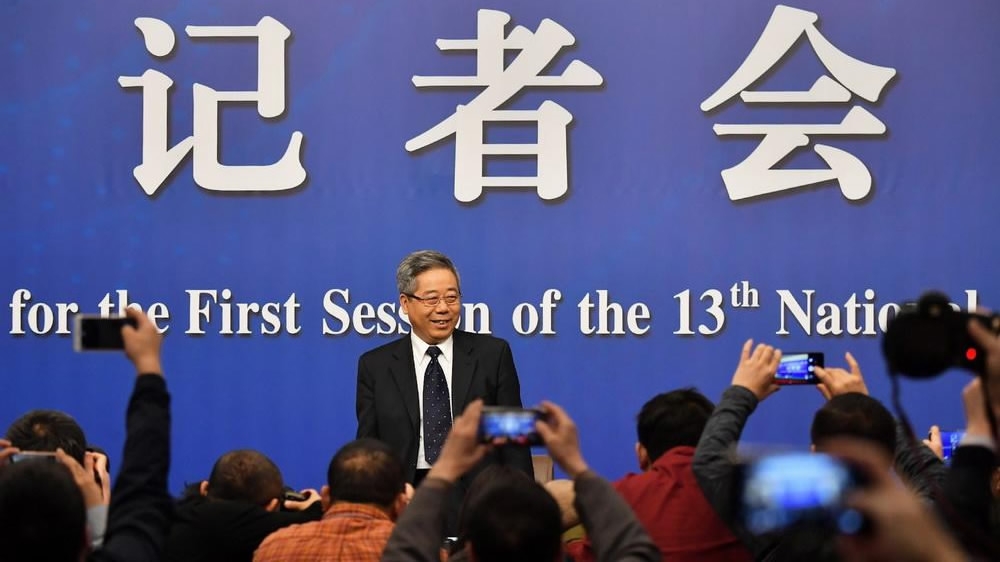China will continue to strive for improvement in the quality of education and enable every child to enjoy fairer education through more investment and reforms, according to Minister of Education (MOE) Chen Baosheng in a press conference on the sidelines of the first session of the 13th National People's Congress in Beijing on Friday.
The ministry enacted a campaign in 2013 aiming to ensure equity and quality in compulsory education by closing regional and urban-rural gaps and reducing disparities between schools, and by tackling issues of wide concern such as school selection, oversized classes and excessive student workloads.
Class sizes and overworked parents and students
In response to a reporter’s question about oversized classes, Chen Baosheng said a breakthrough in cutting down class sizes has been made in the past year, while more effort and attention will be attached in the future.

Minister of Education Chen Baosheng (Center) in a press conference on the sidelines of the first session of the 13th National People's Congress in Beijing on March 16. /Photo via people.cn
Minister of Education Chen Baosheng (Center) in a press conference on the sidelines of the first session of the 13th National People's Congress in Beijing on March 16. /Photo via people.cn
"Our goal is to basically eliminate 'supersized' classes – those containing more than 66 students by 2018," Chen said, while noting that decisive results will be made to eliminate "large" classes of more than 56 students by 2020.
Also in recent years, relieving burdens for students and parents has been a hot topic of discussion, and the MOE has encouraged schools to carry out flexible scheduling with "slow education mode." In response to a question on excessive student workloads, the education minister stressed that the government will release a policy plan to clarify that after-school classes are not considered part of compulsory education.
"We should standardize the educational order and rectify all kinds of training institutions," Chen said, adding that supervising whether some training facilities are qualified to provide training and education services will be the main focus for now.

Reporter asks question about the oversized classes in a press conference on the sidelines of the first session of the 13th National People's Congress in Beijing on March 16. /Xinhua Photo
Reporter asks question about the oversized classes in a press conference on the sidelines of the first session of the 13th National People's Congress in Beijing on March 16. /Xinhua Photo
Improving ideological and political education
During a national conference in December 2016, Chinese President Xi Jinping said that ideological and political work should be integrated into the entire education process. Chen Baosheng told reporters on Friday that after over a year of practice, the MOE is more deeply aware that President Xi's keynote speech in the meeting was a critical milestone.
"We have sent more than 200 experts in ideological and political education into more than 2,500 colleges and universities, and sat in on more than 3,000 classes for the research," Chen said while answering a question related to the political education. Questionnaires collected from more than 30,000 students in those schools have shown that "over 91 percent of students said they are edified after taking the ideological and political courses and like the teachers a lot," he added.

Minister of Education Chen Baosheng answers questions from reporters in a press conference on the sidelines of the first session of the 13th National People's Congress in Beijing on March, 16, 2018. /Photo via people.cn
Minister of Education Chen Baosheng answers questions from reporters in a press conference on the sidelines of the first session of the 13th National People's Congress in Beijing on March, 16, 2018. /Photo via people.cn
The Chinese government will still be facing problems in improving education in some economically disadvantaged regions. In a previous meeting of the Education Section at the first session of the 13th CPPCC National Committee on March 6, Chen said that the MOE, in conjunction with the State Council, has introduced a program for launching targeted support in regions suffering from extreme poverty – all in an effort to tackle the educational imbalances in less developed provinces.
However, statistics show that significant results in educational reform have been achieved over the past five years. With the growing investment in the drive for balanced development in compulsory education, 260,000 schools have been newly built or expanded, capable of receiving an additional 27.25 million students and staffed with 1.72 million more teachers, while a total of 2.43 million schoolmasters and teachers have taken part in academic exchanges.
Click
here to watch the live streaming coverage of the press conference.





